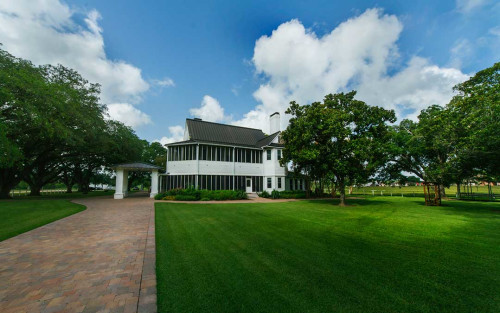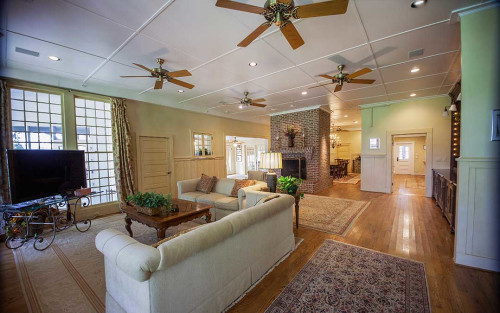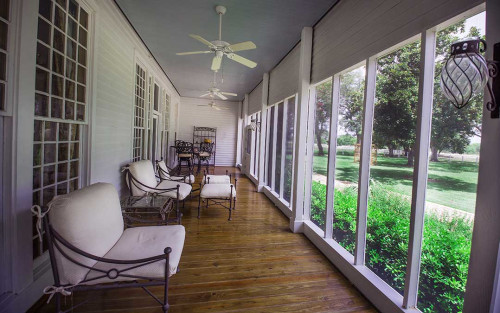






Great Oaks Recovery Center
Treatment Focus
This center treats substance use disorders and co-occurring mental health conditions. Your treatment plan addresses each condition at once with personalized, compassionate care for comprehensive healing.
Primary Level of Care
Offering intensive care with 24/7 monitoring, residential treatment is typically 30 days and can cover multiple levels of care. Length can range from 14 to 90 days typically.
Claimed
Recovery.com has connected directly with this treatment provider to validate the information in their profile.
Treatment Focus
This center treats substance use disorders and co-occurring mental health conditions. Your treatment plan addresses each condition at once with personalized, compassionate care for comprehensive healing.
Primary Level of Care
Offering intensive care with 24/7 monitoring, residential treatment is typically 30 days and can cover multiple levels of care. Length can range from 14 to 90 days typically.
Provider's Policy
We accept most insurance carriers.
Great Oaks Recovery Center
Great Oaks Recovery Center
About Great Oaks Recovery Center
Great Oaks Recovery Center provides individuals and families with a full continuum of care to move beyond struggles of substance use disorder. The continuum of care begins with a thorough diagnosis to uncover contributing factors for addition such as co-occurring conditions, mood disorders, trauma, and other health issues. Supervised and structured detoxification is available for individuals who require a complete release from chemical dependency before moving forward with addiction treatment and recovery goals. Great Oaks offers holistic therapeutic approaches to address the specific needs of the client. Treatment can include individual and group counseling, trauma therapy, 12-Step facilitation, equine therapy, recreational therapy, and nutritional programs. Great Oaks integrates family recovery into their program and offers counseling to family members as well. Treatment doesn’t end when the client leaves Great Oaks. They provide relapse prevention planning, alumni groups, continuing care modifications, and online support. They also provide a ready-to-work program, which creates a sustainable transition back into the workplace after addiction treatment.
Great Oaks Recovery Center is located just outside of Houston in Egypt, Texas. Their modern, farmhouse-style residential treatment center houses 32 clients in a relaxing, cozy atmosphere that gives a sense of a positive community. The grand property sits on 50 gorgeous acres, offering plenty of room to roam. Clients can enjoy an exercise center, as well as recreational activities such as equine therapy, large outdoor swimming pools, volleyball and basketball courts, and marked trails for walking and running. Great Oaks Recovery Center is accredited by the Joint Commission and accepts most private insurance.

Center Overview
Treatment Focus
This center treats substance use disorders and co-occurring mental health conditions. Your treatment plan addresses each condition at once with personalized, compassionate care for comprehensive healing.
Joint Commission Accredited
The Joint Commission accreditation is a voluntary, objective process that evaluates and accredits healthcare organizations (like treatment centers) based on performance standards designed to improve quality and safety for patients. To be accredited means the treatment center has been found to meet the Commission's standards for quality and safety in patient care.
Insurance Accepted
Cash Pay Rates
Estimated Cash Pay Rate
Center pricing can vary based on program and length of stay. Contact the center for more information. Recovery.com strives for price transparency so you can make an informed decision.
Levels of Care






Your Care Options
Who We Treat
Approaches
Holistic
A non-medicinal, wellness-focused approach that aims to align the mind, body, and spirit for deep and lasting healing.
Twelve Step
Incorporating spirituality, community, and responsibility, 12-Step philosophies prioritize the guidance of a Higher Power and a continuation of 12-Step practices.
Therapies
1-on-1 Counseling
Patient and therapist meet 1-on-1 to work through difficult emotions and behavioral challenges in a personal, private setting.
Equine Therapy
Guided interactions with trained horses, their handler, and a therapist can help patients improve their self-esteem, trust, empathy, and social skills.
Family Therapy
Family therapy addresses group dynamics within a family system, with a focus on improving communication and interrupting unhealthy relationship patterns.
Recreation Therapy
In recreation therapy, recovery can be joyful. Patients practice social skills and work through emotional triggers by engaging in fun activities.
Relapse Prevention Counseling
Relapse prevention counselors teach patients to recognize the signs of relapse and reduce their risk.
Twelve Step Facilitation
12-Step groups offer a framework for addiction recovery. Members commit to a higher power, recognize their issues, and support each other in the healing process.
Conditions We Treat
Trauma
Some traumatic events are so disturbing that they cause long-term mental health problems. Those ongoing issues can also be referred to as "trauma."
Substances We Treat
Alcohol
Using alcohol as a coping mechanism, or drinking excessively throughout the week, signals an alcohol use disorder.
Benzodiazepines
Benzodiazepines are prescribed to treat anxiety and sleep issues. They are highly habit forming, and their abuse can cause mood changes and poor judgement.
Co-Occurring Disorders
A person with multiple mental health diagnoses, such as addiction and depression, has co-occurring disorders also called dual diagnosis.
Cocaine
Cocaine is a stimulant with euphoric effects. Agitation, muscle ticks, psychosis, and heart issues are common symptoms of cocaine abuse.
Drug Addiction
Drug addiction is the excessive and repetitive use of substances, despite harmful consequences to a person's life, health, and relationships.
Heroin
Heroin is a highly addictive and illegal opioid. It can cause insomnia, collapsed veins, heart issues, and additional mental health issues.
Methamphetamine
Methamphetamine, or meth, increases energy, agitation, and paranoia. Long-term use can result in severe physical and mental health issues.
Opioids
Opioids produce pain-relief and euphoria, which can lead to addiction. This class of drugs includes prescribed medication and the illegal drug heroin.
Prescription Drugs
It's possible to abuse any drug, even prescribed ones. If you crave a medication, or regularly take it more than directed, you may have an addiction.
Languages
Aftercare
Care Designed for Your Needs
Personal Amenities
Amenities
Activities
What people are saying
Treatment
3.9
Accommodations
3.9
Food & Nutrition
4.3
Value
3.9
James
Reviewed 07/07/21
Review from Rehabs.com
Angela
Reviewed 08/18/24
Review from Rehabs.com
Troy
Reviewed 05/25/21
Review from Rehabs.com
Heather
Reviewed 02/27/18
Review from Rehabs.com
Hector
Reviewed 07/22/24
Review from Rehabs.com





